Navigating 2023: Reflections, Achievements, and Challenges in Global Development
As we enter 2024, it is time to take a moment to reflect on 2023 and acknowledge both the achievements made and the challenges faced around the world. I also want to take this opportunity to focus on those issues and trends that my team and I have seen as the most pressing throughout this year and are likely to impact development efforts in 2024.
SRI Executive – 25 years in business
We were incredibly proud to celebrate our 25th year in business in 2023. My wife, Helen, set up the business in 1998, and we are now entering the next 25 years with a new generation. We are honoured and humbled to have partnered with over 300 mission-driven organisations over these last 25 years to identify and support outstanding leaders, teams, and organisations. It is the enduring impact they have made that continues to inspire us daily. Equally, we take enormous pride in assisting these organisations in crafting strategies that ensure long-lasting impact.
Our remarkable team spans five continents and is the foundation upon which all this rests. With diverse backgrounds and fluency in 35 languages, they bring unique perspectives and share an unwavering passion for global development. None of our achievements would have been possible without their dedication and expertise.
Conflict
An increase in instability and conflict around the world has marked 2023. We are seeing terrible damage being done to communities in countries like Sudan and Ethiopia due to internal war, and massive loss of life and infrastructural damage in Ukraine due to Russia’s invasion and across Gaza due to the Israel/Hamas conflict. We hope that a peaceful resolution to these conflicts will be achieved in 2024, with a focus on the right of all civilians, particularly children, to live lives free of fear and violence.
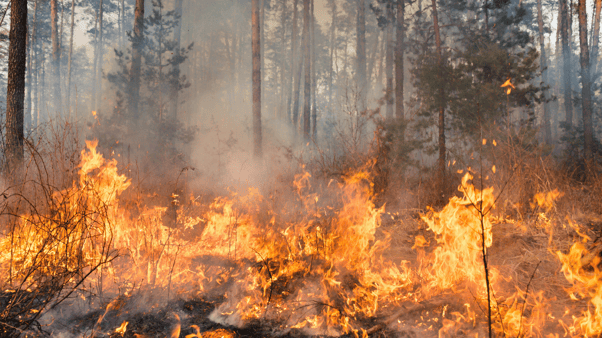
Climate Crisis
2023 has been another record-breaking year for global temperatures as the effects of the Climate Crisis continue to spread. Low- to middle-income countries continue to bear the brunt of these impacts while contributing the least to the causes. Mass consumerism in developed countries continues to feed into carbon emissions and massive waste production. High temperatures have led to widespread fires, frequent droughts, and diminished water sources, reducing once-fertile landscapes to desolate wastelands. Natural disasters have damaged critical infrastructure and destroyed fragile ecosystems, giving rise to severe health risks, growing threats of food insecurity and a lack of livelihood opportunities. Families are being driven from their homes in search of a better future, with the World Bank predicting 216 million people will be displaced by 2050.
Though actions are being taken to address these causes, they have not reached the scale necessary to keep global temperature increases under three °C before the end of the century, an increase that will have catastrophic consequences. The stark reality is that the Climate Crisis also affects every other aspect of development; if we do not fund it effectively, health, education, agriculture, and poverty alleviation will all suffer. Funders must recognise how these issues connect and how centering sustainability while investing in other sectors can solve multiple issues. Our daily work supporting our clients gives us insights into the connectivity of these issues and how we help these organisations address them.
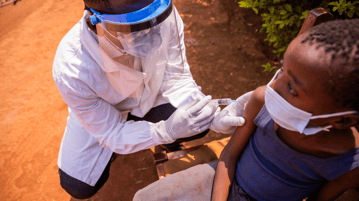
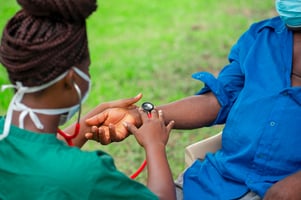
Global Health
2023 saw several achievements in global health. Most significantly, perhaps, the WHO declared the COVID-19 health emergency over. The world owes its heartfelt thanks to the tireless work conducted by healthcare workers and the innovation employed by researchers and vaccine developers, which has allowed us to move out of emergency status and is still ongoing to address the continued impact of the virus. A new vaccine for Malaria prevention was also rolled out to save thousands of children’s lives in Africa, and in 50 countries, at least one neglected tropical disease (such as leprosy or rabies) has been eliminated.
However, we also know that the Climate Crisis directly impacts world health. Food insecurity and malnutrition are increasing vulnerability to illness, particularly among children, and environmental changes are directly impacting the spread of diseases, as seen in cases such as the increased spread of Malaria due to temperature changes benefiting mosquito populations. The continued worsening of the crisis directly increases the likelihood of another pandemic. Understanding how global health connects to the Climate Crisis can play an instrumental role in saving lives. SRI Executive will support our global health clients in every way possible around this. Even things as basic as investing climate funding into health infrastructure development can ensure that clinics and hospitals in low- to middle-income countries have clean electricity to run on and minimise the environmental consequences of their construction.
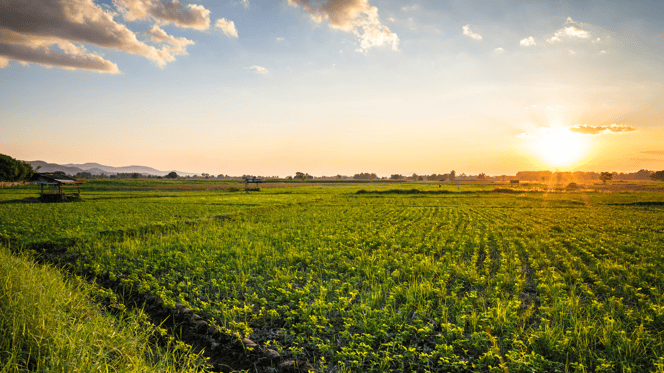
Localisation
SRI Executive has seen a lot of focus on localisation in the last year. Driven by the humanitarian sector, localisation prioritises local actors – individuals, communities, networks, organisations, private entities, and governments – in defining and implementing development agendas. Localisation policies and approaches focus on shifting the centre of power and recognising local actors' values, skills, and knowledge. Despite the growing discussion of this concept, only a few organisations have successfully implemented an effective shift.
Though we have seen an increased commitment to hiring more leaders from low- to middle-income countries to oversee programmes and organisations in their home communities, we know that there is still much that needs to be done to reconfigure how we think about recruitment if local candidates are to have the same opportunities as their international counterparts. As an Executive Search and Consultancy practice, we are rethinking our process, ensuring we can fully support our clients in their localisation efforts. We have also developed partnerships with other consultancies to strengthen contextual knowledge and experience where we are not best placed to work with clients independently. We will continue to reflect on our role alongside our clients as they develop their localisation approaches and embed them into their strategies, organisational structure and design, governance, and staff.
We will discuss localisation in greater depth during our webinar early next year on January 23rd with Pape Gaye, Peter Piot, Lia Tadesse and Khama Rogo. You can register for the webinar here
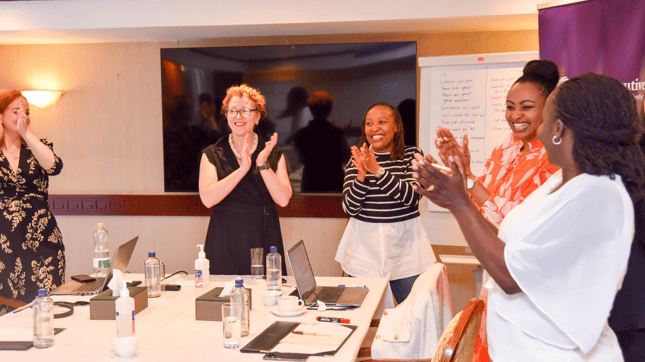
Female Leaders
Though the progress for gender equality took a significant hit during the COVID-19 pandemic, and a lot of work will be needed to overcome this setback, we can confidently say that our clients continue to push to see more women in leadership positions. We are proud that 52% of our placements last year were women, reflecting our commitment to delivering diverse, equitable, inclusive, and accessible search processes for our clients. We have developed a leadership suite to help women leaders at all organisational levels. Through our interview series on feminist leadership, we have examined how leadership can be rethought through a feminist lens and how a more intersectional form of leadership can create a more innovative, adaptable workplace. Next year, we will continue to support diversity across leadership teams within the global development space, both within our team and through our recruitment efforts.
.png?width=487&height=274&name=Global%20Conflict%20(3).png)
Looking Forward - 2024
Government
Against a backdrop of global instability, 2024 will also see over 70 elections. An estimated 4.2 billion people - half of the world’s population - will vote for their next leader. Many of these election results will have global repercussions. Continued growth in the far right is particularly concerning, as support for more extreme parties has risen in the face of increased economic instability and the cost-of-living crisis and could seriously impact legalisation around critical issues, notably the Climate Crisis, human rights, and support of Ukraine. The results of these elections will directly impact the trajectory of global development and the safety of people across the globe in the coming years.
Actors in global development
We have seen unprecedented discussion and debate this year about multilateral development bank (MDB) reform: how they will meet urgent climate as well as poverty challenges; how they can better engage with countries, the private sector and each other; and how much their financial capacity needs to be expanded. Success is not assured, but we may well be on the threshold of the most significant transformation of MDB models since their creation. We support our MDB clients in this transition.
.png?width=590&height=332&name=Global%20Conflict%20(4).png)
Ukraine
The Russian invasion continues, closing in on two years this February. Though we hope for a peaceful resolution to be achieved soon, it is clear from recent attacks that this conflict is far from over. Ukraine remains steadfast in its resistance and continues to hold firm against Russia. Still, the scale of the country's damage will have lasting repercussions well past the end of the invasion.
The World Bank estimates the cost of rebuilding Ukraine to be over USD 400 billion. This includes reconstructing physical assets and essential investments to support Ukraine in becoming a modern, low-carbon, climate-resilient society. Ukraine’s National Recovery Plan focuses on rapid solutions, equitable growth, EU integration and private sector empowerment and outlines a comprehensive roadmap for Ukraine's revival. SRI Executive’s extensive experience in recruitment within the development space tells us that having the right people to lead these initiatives will be crucial to their success. Rapidly acquiring skills, capacities and expertise at various government and private sector levels will be paramount. Collaboration with international partners and deploying innovative approaches, such as training, secondments, and twinning programmes, will also address their challenges.
SRI Executive is currently developing a series of papers covering four themes from the human capital perspective: infrastructure, labour market and the critical role of refugees and internally displaced populations, the private sector and civil society, and cross-cutting themes from judicial reform to psychosocial support to employees. These papers aim to raise awareness of the many social infrastructure challenges that Ukraine is and will face and outline several potential solutions. We are proud to have the insight of Dr. Ede Ijjaz and our Ukrainian colleague, Irina Maystrenko, in the writing of these papers.


Climate Change
2024 is predicted to be even hotter than 2023. We expect emissions to peak between 2020 and 2025, and many nations have failed to meet their commitments since the Paris Agreement. However, CoP28 has seen some movement forward, which can offer hope for future efforts. The Loss and Damage Fund was finally agreed upon with initial pledges totalling over USD 650 million, a firm step forward in supporting low- and middle-income countries that bear the brunt of the consequences of the Climate Crisis. For the first time, a deal was struck for all nations of CoP28 to transition away from fossil fuels, though the language around this agreement has been contentious and will hopefully be strengthened in future deals. We know that addressing this crisis will take high levels of funding and greater commitment from those in power, but we are confident in our clients and know that they will do everything they can to create a safer, cleaner, and more sustainable future for all.
African economies
Economies across Africa are well positioned to see immense growth in the coming years if they are provided with the support and investment, they need to realise their potential. As the continent with the youngest population in the world, it can achieve real innovation and transformation if these young people are empowered to make actual change. However, high poverty levels and ongoing conflict directly hamper economic growth, with climate shocks only feeding into this instability. If African countries are to achieve significant growth, development efforts must look past traditional investment and aid processes and move towards a model that prioritises African perspectives and recognises the diversity of thought and experience throughout the continent.

Artificial Intelligence (AI) technology
Finally, we cannot ignore AI and its growing impact. Like most technology, AI is a tool that has the potential to do immense good or cause great harm. As its use in everyday life spreads, it is important to recognise its benefits and drawbacks. Perhaps most crucial to utilising AI is understanding how the data sets used by AI can impact the biases of its results. It would be a mistake to see AI as an entirely objective source of information, as the responses it will provide to prompts are directly impacted by the data it has been trained on and is drawing from to create an answer. Within recruitment, for example, using AI to screen CVs could see minority candidates automatically eliminated from the process due to the criteria established by a data set of predominately white and male CVs. However, when used wisely, AI can make significant improvements.
For example, drug development requires combing through massive amounts of data, and AI tools can significantly speed up this process. One of our clients, the Bill and Melinda Gates Foundation is using AI tools to address health issues that disproportionately affect the world's poorest, like AIDS, TB, and malaria. This is a hugely exciting positive change. In the future, AI can be a force for good if it is adequately regulated and its users recognise its shortcomings.
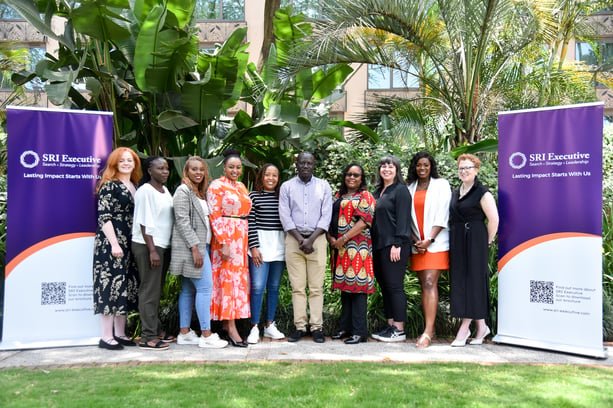
Final Reflections
I remain an optimist. There is no denying that there have been many challenges in 2023, but as reflected above, hard work has been done and continues to be carried out to address them. We at SRI Executive are privileged to witness our clients' commitment to creating a better future. As the Irish seanfhocail says, ‘Ní neart go cur le chéile’- there’s no strength without unity; we all have a role in solving these problems and making the most out of the opportunities. I know that the people we partner with across our focus areas are passionate and dedicated, and through their ingenuity and passion, great things are possible. As 2024 unfolds, I’m committed to taking the lessons I have learned in these last twelve months, creating greater change, and increasing our ability to support our clients to deliver lasting impact.


.png)